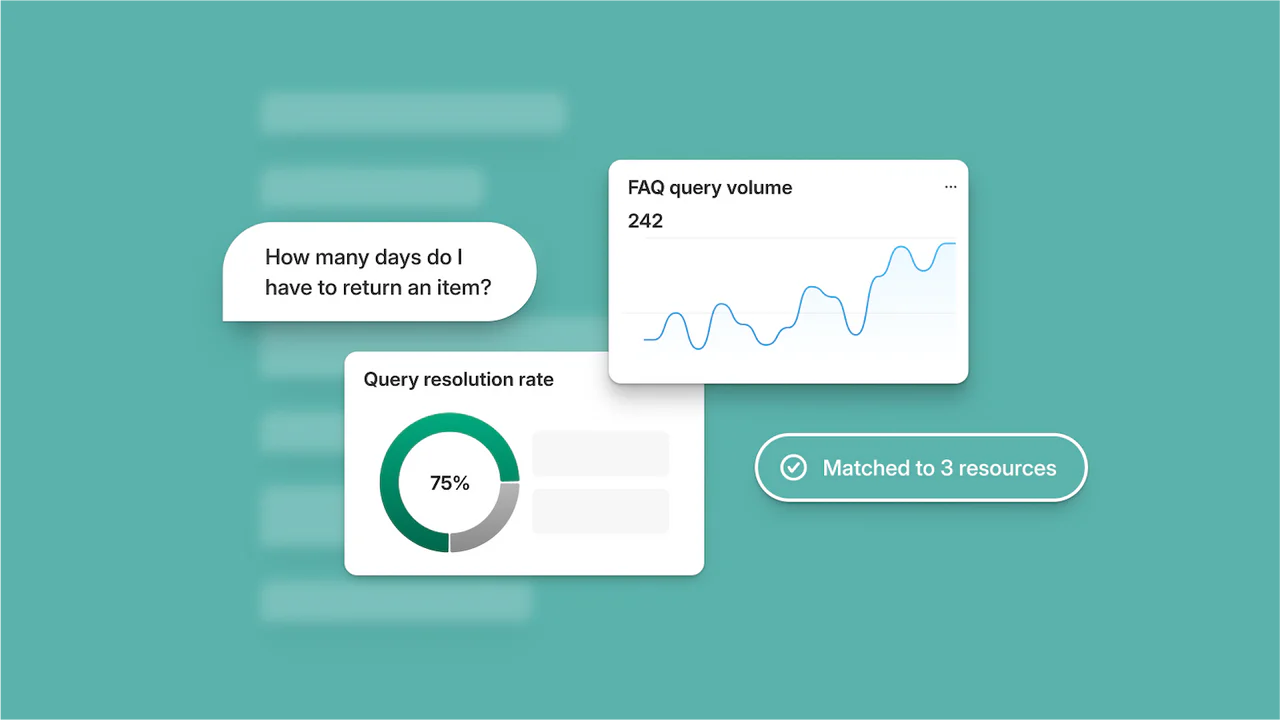Blog / What Shopify’s Knowledge Base means for product discovery and SEO
What Shopify’s Knowledge Base means for product discovery and SEO

When Shopify launched its Horizons update in April, one of the quieter additions was an app called Knowledge Base.
At a glance, it looked like a standard support feature - a way to manage FAQs and reduce inbound queries. But it’s quickly becoming something much more strategic.
Shopify’s Knowledge Base is built to show how often your store is being queried by AI shopping assistants, and to let you shape the answers those systems return. As AI plays a growing role in product discovery, the structure and coverage of your FAQs may directly influence what gets shown, and when.
The interface has only recently started surfacing data, but even in its early form, it’s clear that this is something to take seriously.
Early activity data is now available
Until late July, the Knowledge Base app didn’t show much. No usage data, no product volume, and little to indicate adoption.
That’s now changed. Stores using the app can see how many AI queries have included their products, which products are being surfaced most often, and which types of questions are being asked. It’s not yet possible to view the exact queries – though that may become available in future. There’s also potential to unlock deeper data by connecting it to Shopify’s Storefront MCP, though that requires additional setup.
Even at this early stage, we’ve seen over 40,000 product appearances in AI-powered searches for a single store – a clear sign that these systems are already in active use.
This isn’t about deflecting support tickets
The questions being asked through AI systems aren’t just operational. Many are product-related, and the products appearing most often aren’t always the top sellers. In some cases, key buying questions are coming up repeatedly. In others, common queries are going unanswered.
That absence matters. If an assistant returns incomplete or irrelevant responses, it can undermine trust and stall the customer journey.
At the moment, unanswered questions aren’t flagged directly, but that may change. And when it does, having the right content in place will become even more important.
Structured content supports AI-native discovery
AI systems aren’t crawling your store the way traditional search engines do. They rely on structured, scannable answers – content that can be easily parsed and served as a response.
The Knowledge Base format is designed for exactly that. It gives you a defined space to answer questions in a machine-readable format - and a way to ensure those answers reflect your brand’s voice, priorities and positioning.
But it’s not enough to leave that content tucked away in a help centre.
Surface it where it matters
If a question is useful enough to be answered in the Knowledge Base, it’s probably useful enough to show elsewhere too.
We’ve developed a custom module that brings that content to the surface – displaying FAQ entries contextually across product, collection and support pages. Because Knowledge Base content is stored as metaobjects, it’s straightforward to reuse and extend across the store.
This approach is now being rolled out across our agency clients – helping to connect the dots between product data, customer questions, and AI-powered discovery.
Getting started
If you're on Shopify and not yet using Knowledge Base, it’s simple to set up. The app is free, installs in seconds, and integrates directly with your store: https://apps.shopify.com/shopify-knowledge-base
Once installed:
- Add FAQs that reflect real buying questions
- Use the Activity section to track which products are appearing in search
- Keep an eye on which topics come up repeatedly – and where your store may be falling short
- Think about how and where to surface this content across your site
This is a small feature with potentially big implications. As AI systems play a larger role in how products are found and chosen, shaping the answers they rely on will become a core part of Shopify SEO.






